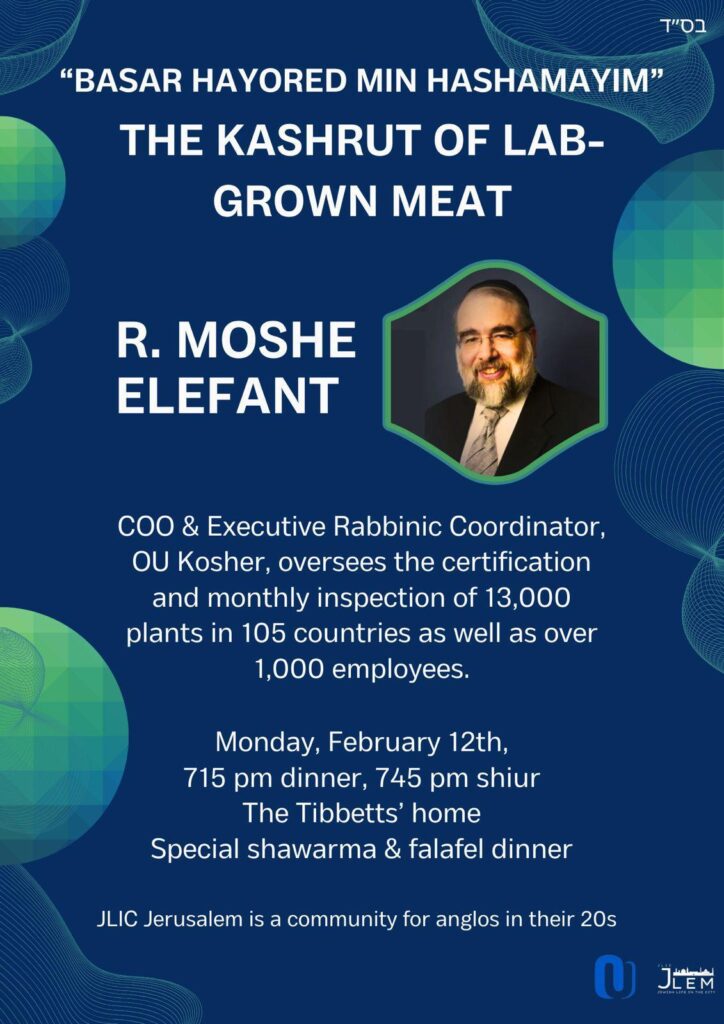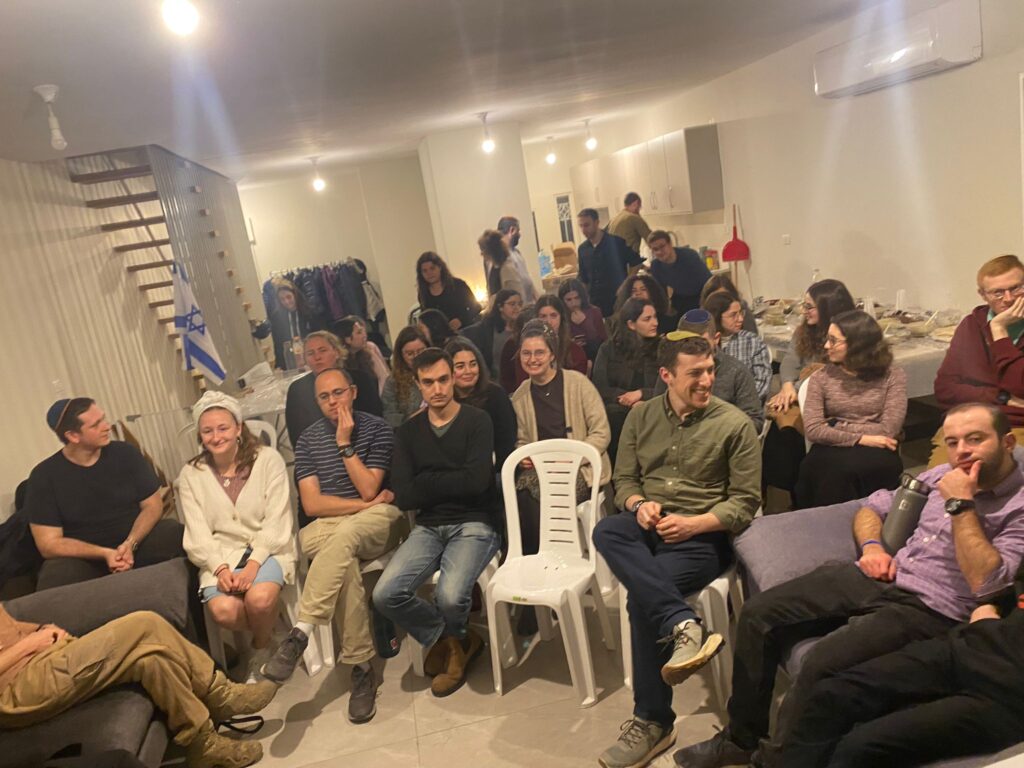In the heart of Jerusalem, amidst the bustling streets and ancient alleyways, a group of eager minds gathered on Monday, February 12th, for an illuminating discourse on a topic at the forefront of modern Jewish dietary law: the kashrut of lab-grown meat. Presented by Rabbi Moshe Elefant, COO and Executive Rabbinic Coordinator of OU Kosher, and graciously hosted at the home of Emily and Rabbi Jeremy Tibbetts, Directors of JLIC in Jerusalem, the event brought together over 50 members of the Jerusalem JLIC community for an evening of enlightenment.
Rabbi Elefant, a distinguished figure in the world of kosher certification, began the session by acknowledging the speculative nature of the discussion, recognizing that the commercialization of lab-grown meat remains uncertain. Nevertheless, the exploration of its kashrut implications proved to be both intellectually stimulating and practically significant for those in attendance.
Throughout the evening, a myriad of topics were dissected, each shedding light on the intricate intersection of modern science and age-old Jewish dietary laws. One pressing question revolved around the origin of the cells used in lab-grown meat production: Does it matter where the cell is taken from? The resounding answer from Rabbi Elefant was yes, emphasizing the importance of understanding the source and its implications for kosher status.
Another intriguing discussion centered on the status of microscopic cells in Jewish law. Can something so minuscule possess a kashrut status? This philosophical inquiry prompted lively debate, highlighting the nuanced approach required when applying traditional halachic principles to emerging technologies.
The role of serum, particularly in stimulating cell growth, emerged as a focal point of scrutiny. Is the serum considered a davar hama’amid, and can it be nullified lechatchila? Rabbi Elefant’s insights provided clarity on these complex matters, elucidating the challenges posed by technological advancements within the framework of Jewish dietary laws.
As the evening progressed, attendees were presented with practical scenarios, such as the kashrut implications of lab-grown meat derived from fetal cells or artificially cultivated chicken eggs. Through rigorous analysis and reference to halachic sources, Rabbi Elefant navigated these inquiries with finesse, offering nuanced interpretations grounded in tradition.
Margo Dickstein, an active member of the JLIC community, remarked “it was the best shiur she’s been to in 6 months,” encapsulating the sentiment of the evening—a fusion of intellectual stimulation and spiritual enrichment.
Yet, amidst the scholarly discourse, one question lingered: Can we ever truly escape maris ayin, the appearance of impropriety? In the realm of lab-grown meat, where scientific innovation blurs the lines between tradition and technology, the pursuit of kosher integrity remains an ongoing journey—one that demands vigilance, discernment, and a steadfast commitment to upholding the timeless values of Jewish dietary law.
As Rabbi Elefant concluded the shiur, uncertainty may linger regarding the future of lab-grown meat, but the pursuit of kashrut excellence remains unwavering—a guiding principle for the Jewish community as it navigates the complexities of a rapidly evolving world.
In the twilight hours of the Jerusalem evening, amidst the aroma of special shawarma and falafel, attendees departed with hearts and minds enriched, ready to continue the dialogue and deepen their understanding of the ever-evolving landscape of kosher observance.
Reach out to any of our Directors to learn more about JLIC and our programming.
